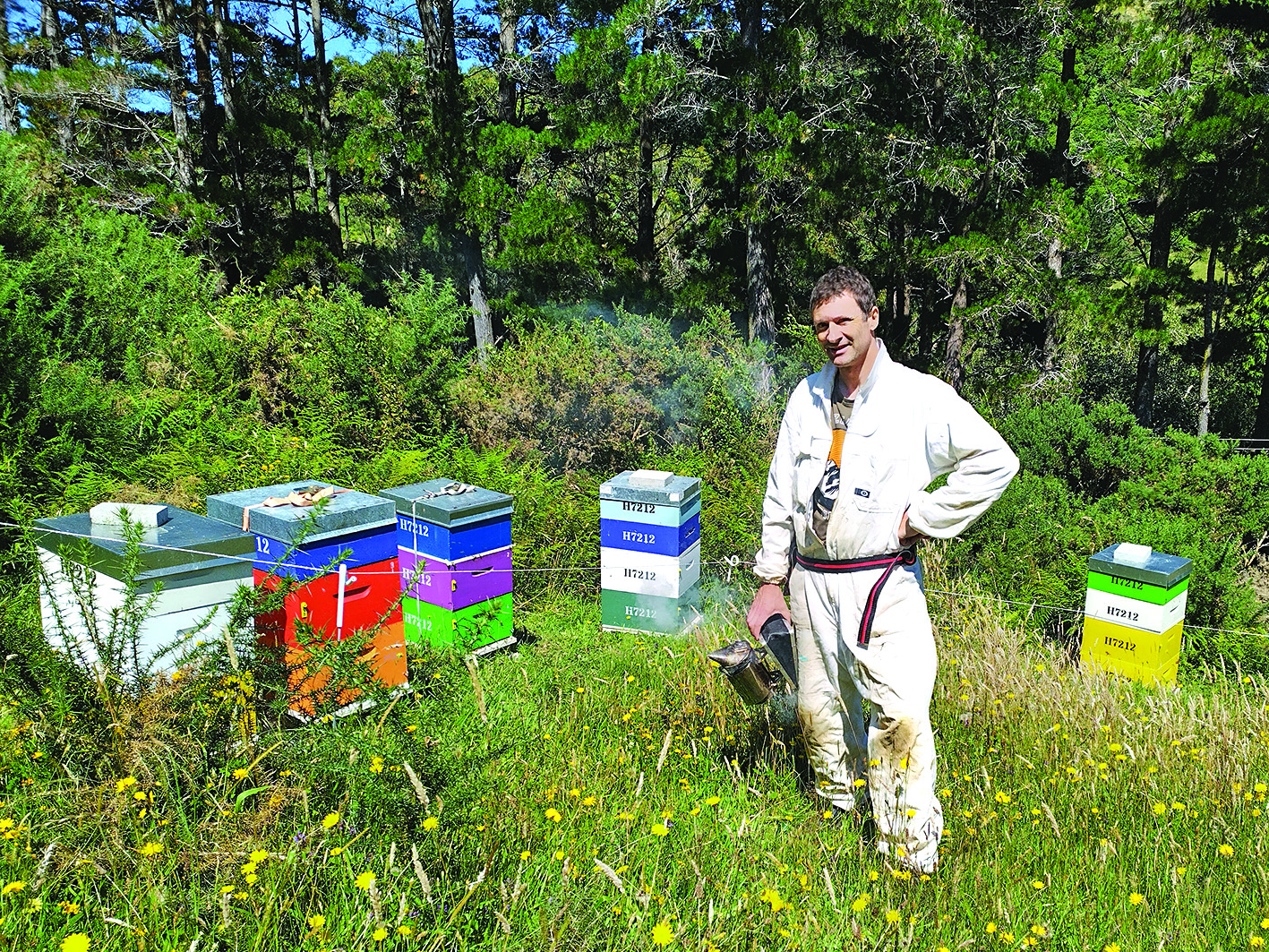MPI animal health laboratory designated a global expert on major bee diseases

Dr Richard Hall with beehives. Photo: Corey Hall
The world authority on animal health has elevated the Ministry for Primary Industries' Animal Health Laboratory (AHL) to the top tier of expertise in two major honeybee diseases - a first for New Zealand.
The designation by the World Organisation for Animal Health (WOAH) makes the AHL, which is based in Wallaceville, an "international reference laboratory" for American foulbrood and varroosis (infestation with varroa mites). It is the first time New Zealand has had an animal health reference laboratory recognised by WOAH.
“The designation of our laboratory as a World Organisation for Animal Health reference laboratory for American foulbrood and varroa is an excellent recognition of our status as a world class laboratory,” said Dr Richard Hall, a principal scientist at MPI, who will lead the reference laboratory.
Reference laboratories around the world play a vital role in advancing the knowledge and control of animal diseases. “Being made an international reference laboratory shows that we’re at the top tier internationally. We’re going to be helping other labs around the world and beekeepers around the world, but it helps our beekeepers as well.
"Bee diseases can be a real challenge here in New Zealand, and our increased laboratory profile will help in efforts to combat them.” A key part of applying for international reference laboratory status is the nomination of an individual scientist with standing and reputation in the field, who meets WOAH's exacting criteria. AHL submitted a technical dossier to WOAH outlining AHL's work supporting apiculture (beekeeping) and the expertise of Dr Richard Hall. This was extensively reviewed by WOAH experts and accepted by the 182 member countries of WOAH. Both varroa and American foulbrood are established in New Zealand honey bees.
The MPI laboratory will be responsible for developing new testing and improving our understanding of the biology and epidemiology of these diseases. It will continue to provide training and support for the New Zealand bee industry and advise WOAH member countries on control and prevention of disease. Dr Hall said varroa was the main cause of colony loss in New Zealand.
“Having an international reference lab for varroa here helps to focus ongoing efforts in New Zealand to combat the upward trend of colony losses to varroa.” Other labs around the world will also be able to come to New Zealand for advice.
“We’ve already had links with Pacific countries and Australia supporting bee health.” Until now, there were only two international reference laboratories for honeybee pests and diseases: ANSES (French Agency for Food, Environmental and Occupational Health & Safety) in France and Friedrich-Loeffer-Institute in Germany.
